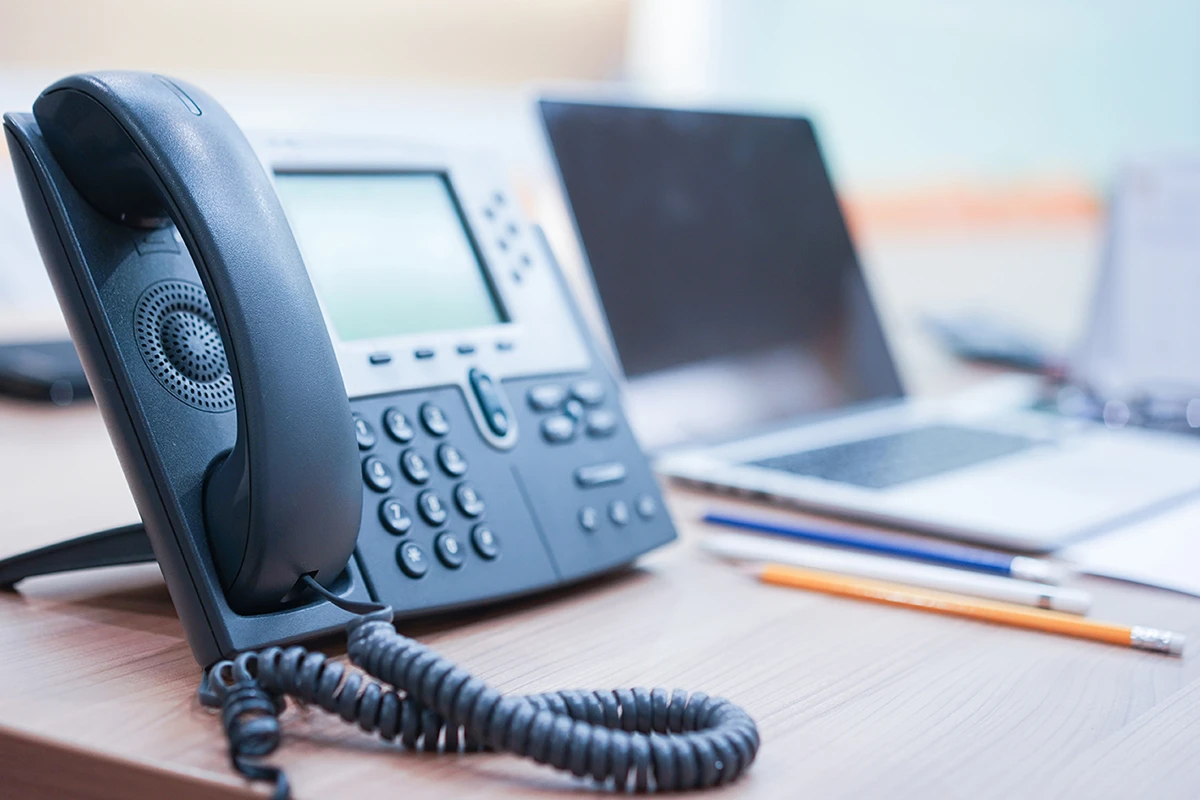9 Tips to Stop Clients Canceling Appointments (Expert Approved)
Discover expert-approved tips for reducing client cancellations and no-shows for your service business.

If you run an appointment-based business, you’ve dealt with the frustrating reality that a shockingly high number of clients aren’t always the most reliable. The average no-show rate across industries ranges from 10-15% — and even higher for healthcare professionals. To put that in perspective, a business generating over $120,000 in annual revenue can lose over $26,000 a year due to missed appointments.
Finding ways to stop clients from canceling appointments last minute and reducing no-shows is essential for your business’s bottom line. Not to mention employee productivity and morale. So, I contacted business owners and experts for their best tips on reducing last-minute cancellations. Here’s what they had to say.
How to reduce last-minute cancellations and no-shows (with advice from experts)

1. Establish a clear cancellation policy
By far, the most popular tip given by almost every business owner surveyed was establishing a clear cancellation policy and sticking to it.
Depending on your business and the amount of preparation that goes into an appointment, you could consider the following cancellation policies
- 48 free cancellation window from the time of booking
- Clients must cancel within 24 hours of their appointment to avoid a fee
- All cancellations are subject to a $X cancellation fee (rescheduling is free of charge)
Either way, cancellation policies should outline
- if/when a client can cancel their appointment,
- if there are any fees associated with canceling or rescheduling an appointment
- how much notice they need to provide before their appointment to avoid said fees.
For appointment-based businesses that are weather dependent, e.g., outdoor swim schools, your cancellation policy should also include what happens in the event of bad weather and who is responsible for canceling the appointment.
Finally, include what happens if your provider has to cancel last minute (due to illness, etc.). While you can take steps to reduce provider cancellations, they can and will still happen. If you want to keep customers happy, consider offering them a free or discounted service or service upgrade to make up for it.
2. Send automated appointment reminders
Another popular tip from our panel of experts is to send automated reminders before the appointment. This allows you to confirm the time and date of the appointment and avoid client forgetfulness which is a common reason for no-shows and last-minute cancellations.
While many business owners send SMS and email reminders, our survey showed that SMS was the most popular.
“... most people are less inclined to read business emails or respond to a phone call. An SMS message is easy to read and also easy enough to reply to. We also require customers to respond with a confirmation message which has helped us reduce last-minute cancellations even more.” — Allen King, Founder and SEO of California-based surf school Aqua Surf.
Expert tip: Ask customers to respond to appointment reminders to confirm.
3. Give clients options
Another great way to avoid last-minute cancellations and no-shows is to give clients more options when they can no longer make their original appointment, like rescheduling or transferring appointments.
Tim Connon, Founder of ParamountQuote Insurance Advisors, has found that offering alternate time slots in their appointment reminders results in fewer cancellations. And they have the added benefit of having enough notice to fill the now-open appointment slots.
As part of your flexible approach to appointment scheduling, it’s important to offer convenient appointment times to reduce client cancellations. Depending on your business, consider whether it makes sense to provide time slots in the evenings or on weekends to give customers more flexibility and avoid them canceling appointments last minute when life happens.
4. Build strong client relationships
A less tangible approach to stopping clients from canceling appointments is to focus on building solid relationships with them. Provide excellent customer service and be responsive to client needs to ensure they’re satisfied with your services and reduce the likelihood of them canceling in the future.
Alisson Seller, business coach and founder of Success Business Coaching, recommends business owners are “proactive about reaching out to clients who habitually cancel at the last minute. Have a conversation with them to understand why they frequently cancel and work together on finding a solution that works for both parties.”
5. Charge upfront or take deposits
An effective, yet not always popular, way to stop clients canceling appointments is to charge upfront or take deposits at the time of booking. This process is a lot easier if a business offers online booking options — which incidentally is a client's preferred method of booking services.
Taking a deposit or charging upfront reduces the likelihood of client no-shows (because no one likes to lose money) and ensures you receive compensation if it does happen. It also reinforces that your time and expertise are valuable, making your services seem more desirable.
Bryan Clayton, the founder of GreenPal, a business connecting clients with lawn care professionals, agrees. They noticed a 95% reduction in cancellations after implementing a non-refundable $5 reservation fee.
“It’s only fair, and I think sometimes a small fee placed in the right spot at the right time can hold everybody accountable and ultimately help everybody get what they want.” - Bryan Clayton, founder of GreenPal.
Expert tip: If you don’t want to charge upfront, take non-refundable deposits when booking.
6. Let clients book specific times rather than service windows
Another effective way of reducing last-minute cancellations is to allow customers to book appointments at specific times rather than those annoying service windows cable companies prefer.
“We’ll be there between 9 am and 3 pm” are seven words your clients hate to hear and are a surefire way to see your cancellations skyrocket. No one has time to wait around for 6 hours for someone to show up, but by providing exact times or allowing customers to book specific slots, you can increase the likelihood of services going ahead as planned.
7. Analyze your cancellation patterns
If you’re trying to avoid no-shows and last-minute cancellations, it’s essential to know why clients are canceling in the first place. When a client calls or emails to cancel, make it a policy to ask them why and record their answers.
Maintaining a record of cancellations allows you to look for trends and develop tactics to avoid them. For example, you might find that many appointments are canceled because it’s inconvenient for clients to travel to your business location. In this case, you might consider offering in-home appointments as an option. Or, if you find that existing customers are canceling repeat appointments because the quality has declined, it could be time to invest in training for your employees.
8. Offer incentives to get clients to show up to appointments
A surprising number of our experts use positive reinforcement to stop clients from canceling last minute. Instead of reducing no-shows, they focus on increasing the number of on-time appointments, and it’s a tactic that seems to be working.
“Offer incentives for clients who arrive on time, such as a discount on their next service or a free gift. This encourages clients to show up on time, or even early, and can help reduce the number of last-minute cancellations and no-shows.” — Tom Monson, owner of Monson Lawn & Landscaping.
9. Keep a waitlist to fill last-minute gaps in schedules
Even if you employ all the tactics on this list, the occasional last-minute cancellation will still happen. Keeping a waitlist of clients you can call with cancellations can help you fill last-minute gaps in employee schedules, so you don’t miss out on a sale.
Final Thoughts
As you can see, there are several ways to stop clients from canceling last minute and reduce no-shows, from more flexible booking options to incentives for reliable customers and non-refundable fees. Whichever tactic(s) you choose, remember, as fantastic as your service may be, it’s just one small part of your customer's day. They lead busy lives, so a well-placed reminder never goes a miss!
Ready to transform your scheduling and operations?
Talk to our sales team and see how MarketBox can help you achieve more with less effort




.svg)

